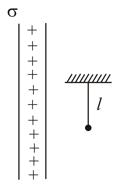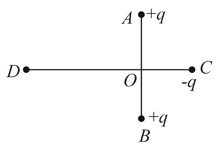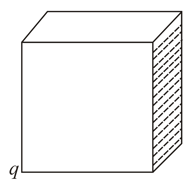Embibe Experts Solutions for Chapter: Electrostatics, Exercise 3: Exercise-3
Embibe Experts Physics Solutions for Exercise - Embibe Experts Solutions for Chapter: Electrostatics, Exercise 3: Exercise-3
Attempt the practice questions on Chapter 22: Electrostatics, Exercise 3: Exercise-3 with hints and solutions to strengthen your understanding. Beta Question Bank for Engineering: Physics solutions are prepared by Experienced Embibe Experts.
Questions from Embibe Experts Solutions for Chapter: Electrostatics, Exercise 3: Exercise-3 with Hints & Solutions
Consider three identical metal spheres and . Spheres A carries charge and sphere carries charge . Sphere carries no charge. Spheres and are touched together and then separated. Sphere is then touched to sphere and separated from it. Finally the sphere is touched to sphere and separated from it. If the final charge on the sphere is , find .
The escape speed of an electron launched from the surface of a diameter glass sphere that has been charged to is........ . (Round off to the nearest integer)
A simple pendulum of length and bob mass is hanging in front of a large nonconducting sheet having surface charge density . If suddenly a charge is given to the bob \& it is released from the position
shown in figure. If the maximum angle through which the string is deflected from vertical is , then find .

Two fixed, equal, positive charges, each of magnitude are located at points and separated by a distance of . An equal and opposite charge moves towards them along the line , the perpendicular bisector of the line . The moving charge, when it reaches the point at a distance of from , has a kinetic energy of . Calculate the distance of the farthest point (in meter) which the negative charge will reach before returning towards .

Two point dipoles and are located at and respectively. If the resultant electric field due to the two dipoles at the point is , find .
The length of each side of a cubical closed surface is . If charge is situated on one of the vertices of the cube, then if the flux passing through shaded face of the cube is , find the value of .

A charge is uniformly distributed over a rod of length . Consider a hypothetical cube of edge with the centre of the cube at one end of the rod. If the minimum possible flux of the electric field through the entire surface of the cube is , find .
There are drops of a conducting fluid. Each has a radius and they are charged to a potential . They are then combined to form a bigger drop. If the potential of bigger drop is n then find .
